The growing trend of using solar-powered cameras signifies a leap towards sustainable living. These devices meet our security requirements by operating independently of traditional power and network infrastructures and supporting environmental conservation efforts. This rise in demand is fueled by the combination of advancements in renewable energy and the latest updates in the security industry, showcasing innovation in the realm of eco-technology.
The Surge in Solar-Powered Camera Usage
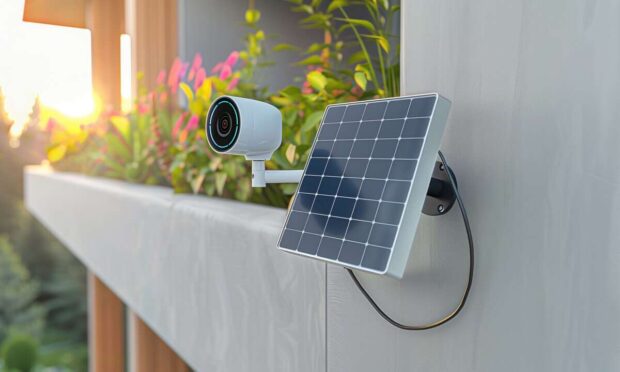
In the last few years, there has been an increase in the use of solar-powered cameras thanks to technological advancements and a shared goal of promoting sustainability. This shift represents more than a passing phase; it mirrors a worldwide commitment to cutting back on energy usage and using renewable sources. The widespread adoption of these cameras in homes, rural properties and businesses demonstrates their efficiency and the rising awareness of their positive impact on the environment and finances.
How Do Solar Cameras Work?
Solar-powered cameras operate by harnessing sunlight, making them a cost-effective and environmentally friendly choice for security needs where power and infrastructure are scarce. The core principle, behind their functionality revolves around photovoltaic (PV) technology, which converts sunlight into electricity. Here is a simplified explanation of how solar cameras function:
1. Solar Panel Absorbs Sunlight
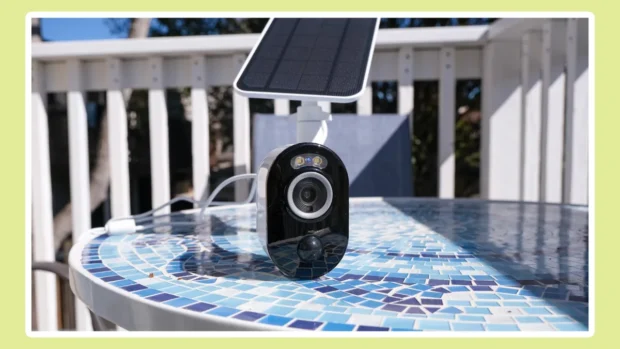
Each solar camera is furnished with a silicon-based panel that captures sunlight. The size and effectiveness of the panel determine the amount of sunlight that can be converted into power.
2. Conversion of Sunlight to Electricity
When sunlight hits the panel, the PV cells within it absorb the sunlight creating a field across the silicon layers. This process produces DC electricity.
3. Powering the Camera
The electricity generated by the panel is used to operate the camera. Most solar cameras feature a battery that gets charged during daylight hours using the electricity produced by the panel. This setup ensures camera operation during nighttime or on overcast days when there is limited sunlight available.
4. Battery Backup
The battery stores energy generated during the day ensuring continuous functionality by allowing the camera to operate round the clock without depending solely on immediate sunlight exposure.
5. Efficient Energy Management
Solar-powered cameras often incorporate energy management systems to enhance efficiency. These systems manage energy flow ensuring the charging of the battery while safeguarding it from overcharging or deep discharging, thereby extending the battery’s lifespan.
6. Remote Accessibility and Security
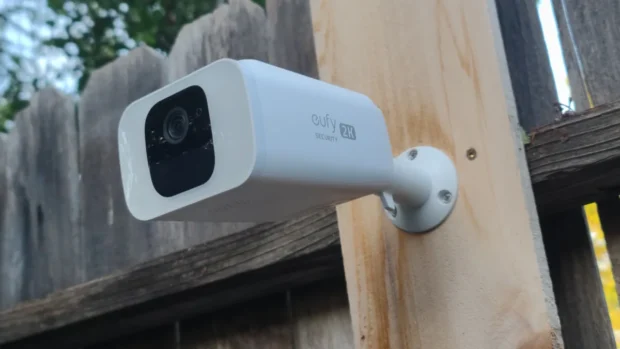
Many solar cameras come equipped with Wi-Fi or cellular connectivity, for access. This feature enables you to stream footage, receive motion alerts and adjust camera settings using a smartphone app or web interface in areas lacking traditional power or internet connectivity.
Key Benefits of Solar-Powered Cameras
Easy Installation and Flexibility:
The wireless feature of solar-powered cameras eliminates the need for cables making it possible to install them in challenging locations. This versatility opens up opportunities for security coverage even in the most remote areas.
Reliability and Self-Sufficiency:
Particularly in areas with unreliable power sources, solar-powered cameras provide a resilient solution. Their ability to function independently off the power grid ensures safety checks, which is vital for isolated areas.
Eco-Friendliness:
Solar-powered cameras represent a significant step forward in reducing the carbon footprint associated with traditional security systems. By harnessing the sun’s energy, they provide a sustainable option that benefits the planet’s wellbeing.
Cost-Effectiveness:
Apart from being eco-friendly, these cameras offer a cost-effective solution in the long term. The initial investment pays off due to no electricity expenses, making them a wise choice over time.
Technological Innovations Enhancing Solar-Powered Cameras
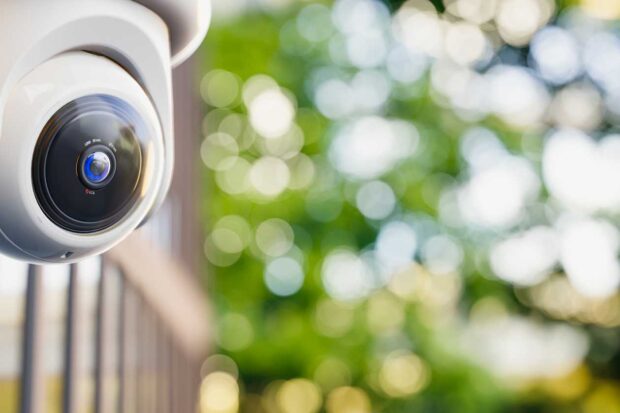
The advancement in battery technology has been a game-changer. With advanced lead acid, lithium-ion, or even graphene-based batteries, solar-powered camera systems have significantly improved in storing and using solar energy, resulting in modern solar-powered cameras boasting extended operational times, even in less sunny conditions.
Furthermore, the efficiency of solar panels has also been improved, including photovoltaic cells, making them more compact and effective than ever before. Smart technology integration, including AI for motion detection and remote security capabilities, has enhanced these cameras into highly sophisticated security tools.
Diverse Applications of Solar-Powered Cameras
From safeguarding homes and businesses to monitoring wildlife or remote agricultural sites, the applications for solar-powered cameras are expansive. Construction sites use solar-powered camera systems to monitor the progress of work, track equipment usage and ensure worker safety. These tools help project managers allocate resources efficiently prevent theft and create a working environment.
Apart from that, they have proven particularly beneficial in urban environments, contributing to safer community spaces without adding to the urban carbon footprint. Their use in disaster management and emergency response scenarios also highlights their value, offering reliable security when traditional systems may fail due to power outages.
Challenges and Considerations
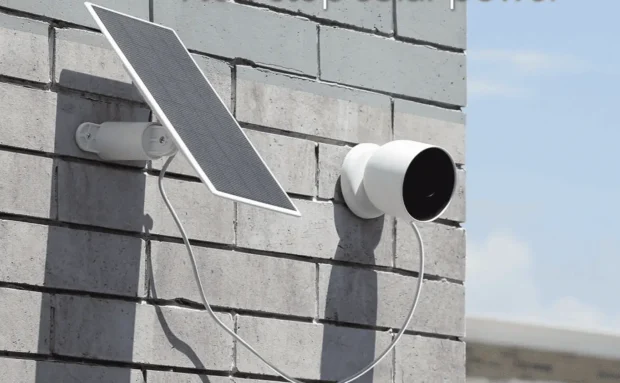
Despite their many advantages, solar-powered cameras do face challenges, particularly in regions with limited sunlight, which can impact their effectiveness. Additionally, the upfront cost of these systems can be higher than traditional options, though this is often mitigated by long-term savings on energy costs.
Future Prospects of Solar-Powered Security Solutions
The trajectory of solar-powered camera technology points towards even greater efficiency and integration in the future. With ongoing advancements in solar cell technology and battery storage, these systems are set to become even more compact, powerful, and versatile.
The ongoing development of solar-powered cameras is reshaping the landscape of security technology, allowing us to prioritise sustainability without sacrificing effective protection. While this progress improves our security measures, it also contributes to fostering a more sustainable and environmentally responsible world.




